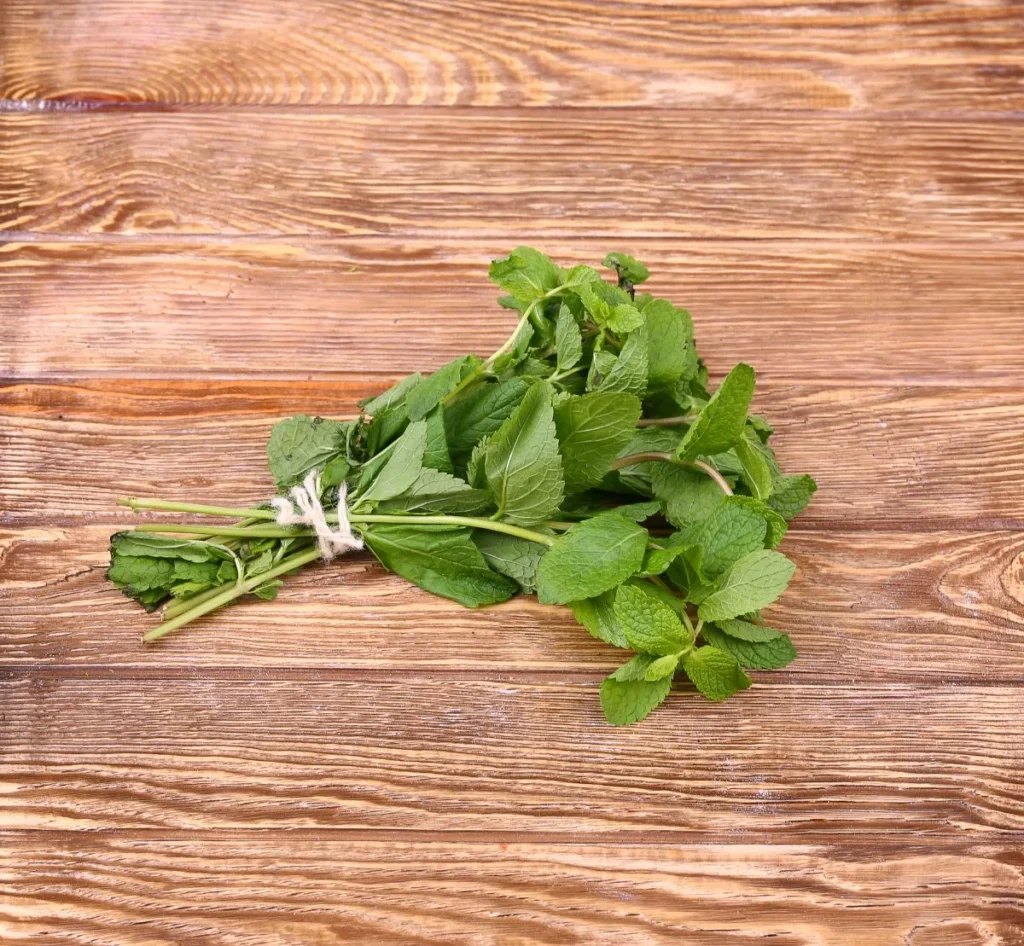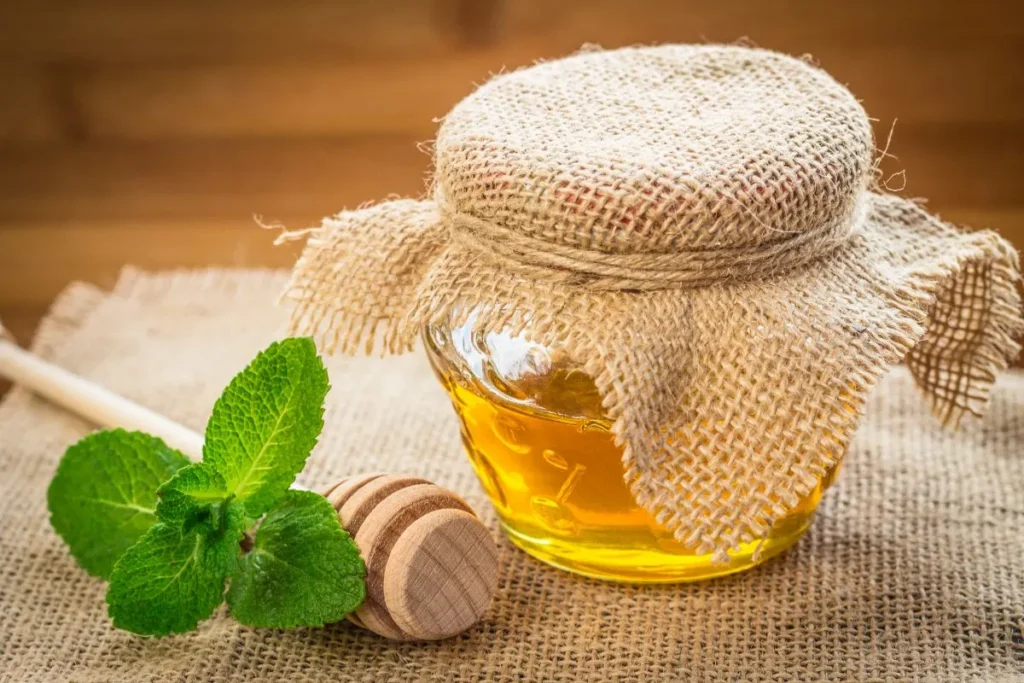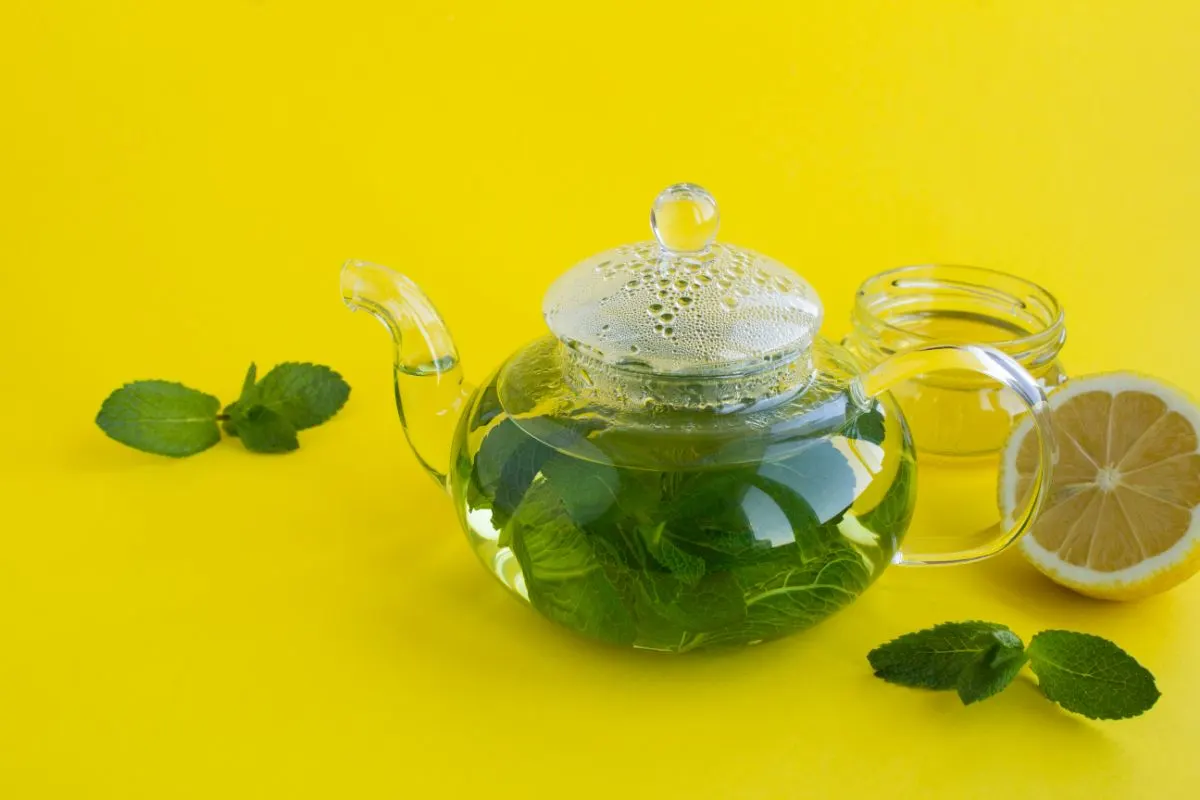Lemon balm recipes for teas, desserts, and skincare tips—discover the many uses of this aromatic herb to enhance your health and lifestyle.
Introduction
Lemon balm, a member of the mint family, has enchanted herb enthusiasts for centuries with its delightful citrusy aroma and numerous health benefits. Known scientifically as Melissa officinalis, this herb is more than just a garden staple—it’s a versatile ingredient that can be used in a variety of ways. From culinary delights to natural remedies, lemon balm offers something for everyone. In this article, we will explore a variety of recipes and uses for lemon balm, focusing on its culinary, medicinal, and skincare applications. By the end, you’ll be inspired to incorporate this herb into your daily routine.
Table of Contents
What Is Lemon Balm?

Lemon balm is a perennial herb native to Europe and the Mediterranean. It has heart-shaped leaves with a distinct lemon scent and is often grown in herb gardens for its beauty and utility. Traditionally used for its calming properties, lemon balm has gained popularity as a culinary herb, tea ingredient, and natural remedy.
Key Characteristics:
- Flavor Profile: Mildly citrusy with a hint of mint
- Uses: Teas, desserts, salads, marinades, and skincare
- Health Benefits: Anti-inflammatory, antiviral, and calming properties
Culinary Uses of Lemon Balm
Lemon balm shines in the kitchen with its ability to enhance both sweet and savory dishes. Below are some of the most delightful ways to use lemon balm in your cooking.
Lemon Balm Tea
Ingredients:
- 1 cup fresh lemon balm leaves (washed)
- 2 cups boiling water
- 1 tsp honey or sweetener of choice (optional)
Instructions:
- Place the fresh lemon balm leaves in a teapot or large mug.
- Pour the boiling water over the leaves and cover.
- Let steep for 10 minutes to extract the flavor and nutrients.
- Strain the leaves and pour the tea into a cup.
- Add honey if desired, and enjoy warm or iced.
Benefits:
- Promotes relaxation and reduces stress
- Supports digestion
Lemon Balm-Infused Honey
Ingredients:
- 1 cup fresh lemon balm leaves
- 1 cup raw honey
Instructions:
- Wash and dry the lemon balm leaves thoroughly.
- Add the leaves to a clean glass jar.
- Pour honey over the leaves, ensuring they are fully submerged.
- Seal the jar and let it infuse in a cool, dark place for 1-2 weeks.
- Strain out the leaves and store the honey for use in teas, desserts, or as a topping for yogurt.
Benefits:
- Adds a citrusy twist to honey
- Boosts the immune system with antiviral properties
Lemon Balm Pesto
Ingredients:
- 2 cups fresh lemon balm leaves
- 1/4 cup pine nuts or sunflower seeds
- 1/2 cup grated Parmesan cheese (optional)
- 1/2 cup olive oil
- 2 cloves garlic
- Salt and pepper to taste
Instructions:
- Wash and dry the lemon balm leaves thoroughly.
- Add the lemon balm, pine nuts, garlic, and Parmesan to a food processor.
- Blend while gradually adding olive oil until the mixture reaches your desired consistency.
- Season with salt and pepper to taste.
- Use as a spread, pasta sauce, or marinade.
Benefits:
- Adds a fresh, citrusy flavor to dishes
- Packed with antioxidants
Lemon Balm Ice Cream
Ingredients:
- 1 cup fresh lemon balm leaves
- 2 cups heavy cream
- 1 cup whole milk
- 3/4 cup sugar
- 4 large egg yolks
Instructions:
- Combine the cream, milk, and half of the sugar in a saucepan over medium heat. Heat until the mixture is hot but not boiling.
- Add the lemon balm leaves to the mixture and let steep for 30 minutes off the heat.
- In a separate bowl, whisk the egg yolks with the remaining sugar until smooth.
- Gradually pour the warm mixture into the egg yolks while whisking constantly.
- Return the mixture to the saucepan and cook over low heat, stirring constantly, until thickened.
- Strain out the lemon balm leaves and refrigerate the mixture until chilled.
- Churn in an ice cream maker according to the manufacturer’s instructions.
Benefits:
- A refreshing dessert with a herbal twist
- Perfect for summer gatherings
Lemon Balm Lemonade
Ingredients:
- 1/2 cup fresh lemon balm leaves
- 1 cup freshly squeezed lemon juice
- 1/2 cup sugar (or honey)
- 4 cups water
- Ice cubes
Instructions:
- Muddle the lemon balm leaves in a pitcher to release their aroma.
- Add the lemon juice and sugar or honey, stirring until the sweetener dissolves.
- Pour in the water and mix well.
- Add ice cubes and garnish with additional lemon balm leaves.
- Serve chilled and enjoy a refreshing herbal lemonade.
Benefits:
- Hydrating and flavorful
- Perfect for warm weather
Lemon Balm Shortbread Cookies
Ingredients:
- 1 cup butter, softened
- 1/2 cup sugar
- 2 cups all-purpose flour
- 1/4 cup finely chopped fresh lemon balm leaves
- 1 tsp vanilla extract
Instructions:
- Preheat the oven to 350°F (175°C).
- Cream the butter and sugar together until light and fluffy.
- Gradually mix in the flour, chopped lemon balm, and vanilla extract until a dough forms.
- Roll out the dough on a floured surface and cut into shapes using cookie cutters.
- Place the cookies on a baking sheet lined with parchment paper.
- Bake for 10-12 minutes or until lightly golden.
- Allow to cool and enjoy with tea or coffee.
Benefits:
- A buttery and aromatic treat
- Ideal for afternoon tea
Lemon Balm Chicken Marinade
Ingredients:
- 1/4 cup olive oil
- 1/4 cup lemon juice
- 2 tbsp finely chopped lemon balm leaves
- 2 cloves garlic, minced
- 1 tsp salt
- 1/2 tsp black pepper
Instructions:
- Combine all the ingredients in a bowl and mix well.
- Place chicken pieces in a resealable plastic bag or shallow dish.
- Pour the marinade over the chicken, ensuring it is evenly coated.
- Marinate in the refrigerator for at least 2 hours or overnight.
- Grill, bake, or sauté the chicken as desired.
Benefits:
- Infuses chicken with a fresh and citrusy flavor
- Great for grilling or roasting
Pair your herbal creations with comforting sides like our fluffy vegan biscuits and creamy gravy for a complete meal.
Medicinal Uses of Lemon Balm

Lemon balm has been used as a natural remedy for centuries. Here are some common medicinal uses:
Calming Effects
Lemon Balm Tincture
- A concentrated herbal tincture made from lemon balm can be used to reduce anxiety and promote sleep. Mix a few drops into water or tea for a soothing effect.
Digestive Aid
Lemon Balm Smoothie
Ingredients:
- 1 cup fresh lemon balm leaves
- 1 banana
- 1 cup Greek yogurt
- 1/2 cup almond milk
- 1 tbsp honey
Instructions:
- Blend all ingredients until smooth.
- Enjoy as a refreshing and gut-friendly drink.
Household Uses of Lemon Balm
Lemon balm can also be used around the home in a variety of ways:
Natural Insect Repellent
- Crush fresh lemon balm leaves and rub them onto the skin to repel mosquitoes naturally.
Aromatic Potpourri
- Dry lemon balm leaves and mix with other dried flowers and herbs for a fragrant potpourri.
Healthy Herbs for Your Garden
Herbs like lemon balm can transform your garden into a lush, aromatic space while offering numerous practical benefits. Growing your own herbs ensures a fresh and ready supply for culinary, medicinal, and decorative uses. Here are some healthy herbs to consider adding to your garden:
Basil
- Benefits: Known for its sweet aroma and versatile culinary uses, basil is excellent for adding to salads, pasta, and sauces.
- Growing Tips: Requires plenty of sunlight and well-drained soil. Pinch back flowers to encourage leaf growth.
Mint
- Benefits: A vigorous grower, mint is great for teas, desserts, and as a natural breath freshener.
- Growing Tips: Plant in a container to prevent it from spreading uncontrollably.
Rosemary
- Benefits: A hardy herb with a pine-like aroma, rosemary is perfect for marinades, roasted vegetables, and bread.
- Growing Tips: Thrives in sunny locations with well-draining soil.
Thyme
- Benefits: This low-maintenance herb adds depth to soups, stews, and roasted dishes.
- Growing Tips: Prefers full sun and slightly dry soil.
Lemon Balm
- Benefits: As highlighted in this article, lemon balm is versatile for teas, desserts, and medicinal uses.
- Growing Tips: Grows well in partial to full sunlight and moist soil. Regular pruning encourages new growth and prevents flowering.
Adding these herbs to your garden not only enhances its visual appeal but also creates a sustainable source of fresh ingredients for your kitchen and home remedies.
Nutritional Content (Per 100g of Lemon Balm)
| Nutrient | Amount |
|---|---|
| Calories | 44 kcal |
| Protein | 3.7 g |
| Carbohydrates | 8.0 g |
| Fiber | 2.5 g |
| Vitamin C | 13.3 mg |
| Potassium | 458 mg |
FAQ Section
What do you do with fresh lemon balm?
Fresh lemon balm can be used in teas, infused water, desserts, savory dishes, pestos, marinades, and even household remedies. It’s also great for making herbal remedies and skincare products.
Does lemon balm help lose belly fat?
While lemon balm supports healthy digestion and reduces stress, which can indirectly aid in weight management, it’s not a direct fat-burning herb. Combining it with a healthy lifestyle may enhance overall wellness.
What is lemon balm best used for?
Lemon balm is best used for its calming properties, digestive support, and versatility in teas, desserts, skincare, and natural remedies.
Can you drink lemon balm tea every day?
Yes, lemon balm tea is safe for daily consumption and offers numerous health benefits, including stress relief, improved digestion, and enhanced sleep.
Conclusion
Lemon balm is an extraordinary herb that brings flavor, fragrance, and health benefits to your life. From soothing teas and flavorful dishes to nourishing skincare products, this herb has endless possibilities. Incorporating lemon balm into your daily routine is a simple yet impactful way to enhance your lifestyle. Let its citrusy charm inspire your culinary and wellness journey today.

